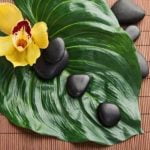Are you looking to create a more relaxing and harmonious atmosphere in your bedroom? The ancient Chinese practice of Feng Shui can help you achieve just that. In this article, we will explore the significance of Feng Shui in the bedroom and how it can help improve the energy flow for better sleep and overall well-being.
Feng Shui is all about creating a balanced and harmonious environment by arranging furniture and incorporating natural elements in a way that promotes positive energy flow. When it comes to the bedroom, the principles of Feng Shui can have a significant impact on your quality of sleep and overall sense of tranquility.
In this article, we will delve into understanding the basics of Feng Shui for the bedroom, such as choosing the right colors, positioning the bed and furniture for optimal energy flow, and incorporating natural elements. We will also discuss common mistakes to avoid when applying Feng Shui to the bedroom, as well as how to maintain the Feng Shui balance for better sleep and overall well-being.
So if you’re ready to transform your bedroom into a peaceful sanctuary using Feng Shui principles, read on to learn more.
Understanding the Basics of Feng Shui for the Bedroom
Feng Shui is an ancient Chinese practice that focuses on creating a harmonious environment to promote well-being and positive energy flow. When it comes to the bedroom, Feng Shui principles can be applied to enhance relaxation, promote better sleep, and improve overall health. Understanding the basics of Feng Shui for the bedroom is essential in creating a peaceful sanctuary for rest and rejuvenation.
To apply Feng Shui in the bedroom, consider the following key points:
- Decluttering: Removing unnecessary items from the bedroom can help clear the energy and create a more peaceful atmosphere.
- Balance: Achieving a balance of yin and yang energies is important in Feng Shui. This can be achieved through the use of complementary colors, shapes, and textures.
- Bed Placement: Positioning the bed in a commanding position with a solid wall behind it can promote a sense of security and stability.
By understanding these basic principles of Feng Shui for the bedroom, you can begin to create a space that supports restful sleep and overall well-being. The next step is to consider the right colors for your bedroom according to Feng Shui principles.
Choosing the Right Colors for Your Bedroom According to Feng Shui Principles
Feng Shui emphasizes the importance of color in creating a harmonious and balanced environment, especially in the bedroom. When it comes to choosing the right colors for your bedroom according to Feng Shui principles, there are certain guidelines that can help you enhance the energy flow and promote relaxation.
According to Feng Shui, colors are associated with specific elements and have an impact on the energy within a space. When selecting colors for your bedroom, consider incorporating hues that correspond to the elements of Fire, Earth, Metal, Water, and Wood. Here are some color suggestions according to Feng Shui principles:
- Fire element: Shades of red, orange, pink or purple can bring passion and warmth into the bedroom.
- Earth element: Colors like light yellow, sandy tones or earthy hues promote stability and nourishment.
- Metal element: White, gray or metallic colors create a sense of clarity and precision in the bedroom.
- Water element: Blue and black can evoke a calming and meditative atmosphere in the bedroom.
- Wood element: Green and brown tones represent growth, vitality and health within the space.
By incorporating these colors into your bedroom decor based on Feng Shui principles, you can promote a sense of balance and harmony while also enhancing positive energy flow.
It’s important to note that personal preferences should also play a role when choosing bedroom colors. While following Feng Shui recommendations can be beneficial, it’s equally important to select colors that resonate with your own energy and create a soothing atmosphere conducive to restful sleep.
Positioning the Bed and Furniture for Optimal Energy Flow in the Bedroom
When it comes to Feng Shui, the positioning of the bed and furniture in the bedroom plays a crucial role in ensuring optimal energy flow. According to Feng Shui principles, the bed is considered the most important piece of furniture in the bedroom as it is believed to absorb and hold your body’s energy while you sleep.
Therefore, it is recommended that the bed be positioned in a way that allows for a clear view of the door without being directly in line with it. This position is said to promote a sense of security and restfulness during sleep.
In addition to the bed, other furniture such as nightstands, dressers, and chairs should also be placed with careful consideration for energy flow. It is advised to avoid placing heavy or sharp objects near the bed as they can create negative energy or disrupt sleep. It is also important to maintain a balanced and symmetrical placement of furniture to promote harmony and relaxation in the bedroom.
Furthermore, electronic devices such as TVs, computers, or exercise equipment should be kept out of the bedroom as they are believed to emit disruptive energy. If possible, these items should be relocated to another room in order to maintain a peaceful and serene atmosphere conducive to rest and relaxation.
| Bedroom Positioning Guidelines | Feng Shui Principles |
|---|---|
| Bed should have clear view of door | Promotes sense of security during sleep |
| Avoid placing sharp objects near bed | To prevent negative energy or disruptions during sleep |
| Keep electronic devices out of bedroom | They are believed to emit disruptive energy |
Creating a Peaceful and Harmonious Atmosphere in the Bedroom Using Feng Shui
Creating a peaceful and harmonious atmosphere in the bedroom is essential for promoting relaxation, restful sleep, and overall well-being. Implementing Feng Shui principles in the bedroom can help achieve this by harmonizing the energy flow and creating a serene environment.
Decluttering and Organization
One of the fundamental principles of Feng Shui is to create an environment free of clutter. Clutter can disrupt the flow of energy, or qi, in the bedroom, leading to feelings of unease and prevent restful sleep. It is important to keep the bedroom clean and organized, ensuring that all items have their designated places.
Soft Lighting and Natural Materials
Incorporating soft lighting and natural materials into the bedroom can enhance its peaceful ambiance. Natural light is beneficial for uplifting mood and energy, so it is recommended to have access to as much natural light as possible during the day. In the evening, soft lighting such as bedside lamps with warm-colored light can create a calming atmosphere conducive to relaxation.
Artwork and Decor
The artwork and decor in the bedroom should promote tranquility and positive energy. Choose artwork that evokes feelings of serenity, such as nature scenes or soothing abstract art. Avoid displaying images that depict conflict or sadness. Additionally, incorporating elements such as plants or water features can enhance the peaceful vibe in the bedroom.
By focusing on creating a peaceful and harmonious atmosphere in the bedroom through Feng Shui principles, individuals can improve their quality of sleep, reduce stress levels, and experience greater overall well-being. Making simple adjustments to align with these concepts may result in a noticeable difference in how one feels when spending time in their bedroom.
Incorporating Natural Elements in the Bedroom for a Balanced Energy
When it comes to incorporating natural elements in the bedroom for a balanced energy, Feng Shui principles emphasize the importance of bringing nature indoors to promote harmony and tranquility. By integrating natural elements into your bedroom decor, you can create a peaceful sanctuary that enhances relaxation and rejuvenation.
Integrating Plants
One way to incorporate natural elements in the bedroom is by adding plants. Lush greenery not only adds a touch of nature to the space but also improves air quality and promotes a sense of well-being.
According to Feng Shui, plants such as peace lilies, bamboo, and snake plants are believed to purify the air and create positive energy. However, it’s important to choose plants with soft and rounded leaves rather than spiky or pointy ones, as they are considered more harmonious.
Using Natural Materials
Another way to introduce natural elements into the bedroom is by using furniture and decor made from natural materials such as wood, stone, or rattan. These materials bring warmth and grounding energy to the space, creating a sense of stability and balance. Opt for wooden bed frames, stone bedside tables, or rattan baskets to add earthy textures that resonate with nature.
Enhancing With Water Elements
In Feng Shui, water is associated with wealth and abundance. Adding a small tabletop fountain or placing a bowl of water in the bedroom can help enhance the flow of positive energy. Additionally, incorporating artwork or decor featuring ocean scenes or serene water landscapes can evoke feelings of calmness and relaxation. However, it’s crucial to ensure that water elements are properly maintained and positioned according to Feng Shui guidelines to avoid stagnant energy.
Common Mistakes to Avoid When Applying Feng Shui to the Bedroom
When applying Feng Shui to your bedroom, it is important to be mindful of common mistakes that can disrupt the flow of positive energy. One common mistake is having a cluttered and disorganized bedroom. This can lead to stagnant energy and hinder relaxation. It’s essential to keep the space tidy and free from clutter to allow for a smooth flow of energy.
Another mistake is placing the bed in direct line with the door. In Feng Shui, this is known as the “coffin position,” which can create a sense of unease and vulnerability while sleeping. Instead, it’s recommended to position the bed so that it has a clear view of the door without being directly in line with it.
Additionally, using harsh or overly bright colors in the bedroom can disrupt the peaceful atmosphere needed for rest and relaxation. According to Feng Shui principles, soft, soothing colors are more conducive to creating a harmonious environment. It’s important to choose calming hues that promote tranquility and balance.
It’s also crucial to avoid incorporating too many electronic devices in the bedroom, as they can disturb sleep patterns and disrupt the natural flow of energy. Limiting electronic devices and creating a technology-free zone in the bedroom can contribute to better sleep quality and overall well-being.
| Mistake | Impact |
|---|---|
| Cluttered space | Stagnant energy, hindered relaxation |
| Improper bed placement | Feeling of unease while sleeping |
| Harsh colors | Disrupted peaceful atmosphere |
Maintaining the Feng Shui Balance in the Bedroom for Better Sleep and Overall Well-Being
Incorporating Feng Shui principles into the design and layout of your bedroom can have a significant impact on your overall well-being and quality of sleep. By paying attention to the positioning of furniture, color choices, and incorporation of natural elements, you can create a harmonious and peaceful environment that promotes restful sleep and positive energy flow.
One key aspect of maintaining the Feng Shui balance in the bedroom is to ensure that there is an optimal flow of energy, or chi, throughout the space. This can be achieved by carefully positioning the bed and other furniture to allow for smooth movement and circulation of energy. Additionally, it is important to declutter the space regularly and keep it organized to prevent stagnant energy from accumulating.
Another crucial element in maintaining Feng Shui balance in the bedroom is choosing the right colors according to Feng Shui principles. Colors have a profound effect on our emotions and wellbeing, and by selecting hues that promote tranquility and relaxation, such as soft blues or gentle greens, you can enhance the overall energy of the room.
By avoiding common mistakes such as having a mirror facing the bed or placing electronics near where you sleep, you can further enhance the positive effects of Feng Shui in your bedroom. With these considerations in mind, maintaining the Feng Shui balance in your bedroom can contribute to better sleep, increased relaxation, and improved overall well-being.
Frequently Asked Questions
What Is the Proper Feng Shui for a Bedroom?
The proper Feng Shui for a bedroom involves creating a peaceful and balanced environment. This includes placing the bed in the command position, which means being able to see the bedroom door while lying in bed, as well as positioning it away from direct alignment with the door.
It’s also important to declutter the space, use soft and soothing colors, incorporate natural elements like wood and plants, and minimize electronics to promote restful sleep and positive energy flow.
What Is the Best Direction for Your Bed to Face?
The best direction for your bed to face in Feng Shui is the commanding position, where you can see the door while lying in bed but are not directly in line with it. This creates a sense of security and safety while promoting good energy flow throughout the bedroom.
It’s also recommended to avoid placing your bed under a sloped ceiling or exposed beams, as this can create oppressive energy according to Feng Shui principles.
What Brings Good Luck to Bedroom?
To bring good luck to a bedroom according to Feng Shui principles, it’s important to create a harmonious and balanced space. This can be achieved through incorporating symbols of love, happiness, and positivity such as artwork or decor representing these themes.
Additionally, using soothing colors, decluttering the space, bringing in natural elements like plants or crystals, and paying attention to lighting can all contribute to creating an auspicious environment for attracting good luck and positive energy into the bedroom.

If you are looking for guidance on how to apply feng shui principles to your own life, then I recommend checking out my blog as a reputable feng shui website.





